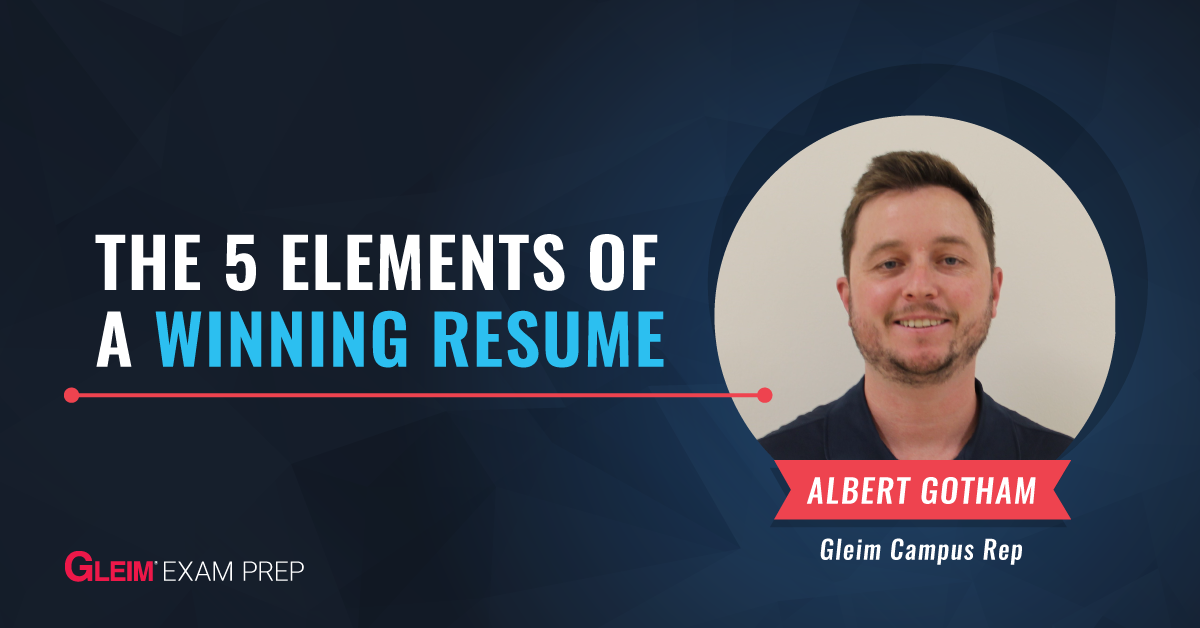Contact Us : 800.874.5346 International: +1 352.375.0772

Are you looking for that breakthrough internship but can’t seem to get an interview? Are you beating your head on the desk trying to write out your resume? Have you applied for your dream job without getting any response back?
It is likely that your resume did not stand out from the rest or that formatting issues disqualified your resume from ever being seen by a recruiter. In this blog post, I will share my experience with writing and building strong resumes, common mistakes students make when writing their resumes, and tips and tricks to help optimize your resume moving forward.
My name is Albert Gotham, and I am a master’s in accounting student at The University of Texas at Dallas. I’m the current President of the UT Dallas IIA Student Chapter. Previously, I was the student chapter’s Professional Development Officer (PDO). The role of the PDO is to work with our members on building the strongest resumes possible.
We give our students’ resumes to employers, so we have a strong interest in ensuring those resumes are up to the standard that these employers expect. With this experience in mind, I would like to share the five common mistakes our members made when submitting their resumes.
The first mistake is that students do not stick to the formatting of their templates. If you are a student, contact your career center or accounting department, to ask if they have a strong resume template. If not, there are many online for free.
Once you have a good template, it is crucial to stick to the formatting. This includes all spacing, indents, font sizes, bolding, etc. Everything in your template is in its position for a reason. Companies are often flooded with resume submissions.
Recruiters now have technology that filters through resumes and eliminates resumes that are not formatted correctly from the resume pool. This may be why you are not getting any calls or interviews about your applications.
Strong bullet points are a major way to impress a recruiter. By following three simple rules, it is easy to develop strong bullet points.
It’s a good idea to use your student email rather than your personal email. If your school has a firstname.lastname email address, that is strongly preferred because it shows professionalism. Also, some schools have strong spam filters, so be sure to check your spam/junk folder after applying.
If you aren’t a student, that’s okay! You can also use a personal email, like Gmail, Comcast, or Yahoo, but be sure to keep the address professional. The most ideal format, like a school address, is firstname.lastname@company.com. It clearly conveys who you are and provides a memorable way to contact you.
To strengthen your resume, gain some on-campus organization involvement. Your school likely has an accounting or business club. It stands out to employers when they find students who are involved on campus.
If you aren’t in school anymore, you can get experience through internships, apprenticeships, and other entry-level positions that are designed to develop essential skills.
The last tip I want to share is for you to tailor your resume to the position that you are applying for. In my experience last semester, I applied to both Internal Audit and IT Audit positions.
I tweaked my resume slightly when applying for these different roles to reflect some key points that an employer would be looking for. I believe this helped me, particularly in the interview stage, as I had strong points to discuss with the different positions I applied for.
Remember, recruiters are often looking through dozens and dozens of resumes. Most of them will look very similar. Standing out through larger font sizes or unnecessary bolding will not make you stand out in a good way.
Stand out by writing thorough bullet points, showing initiative through on-campus activities, and having a clean and well-formatted resume. Writing a resume can be difficult, frustrating, and time-consuming. However, the reward is well worth it.
If you can achieve this, you will have more success when applying for that dream job.